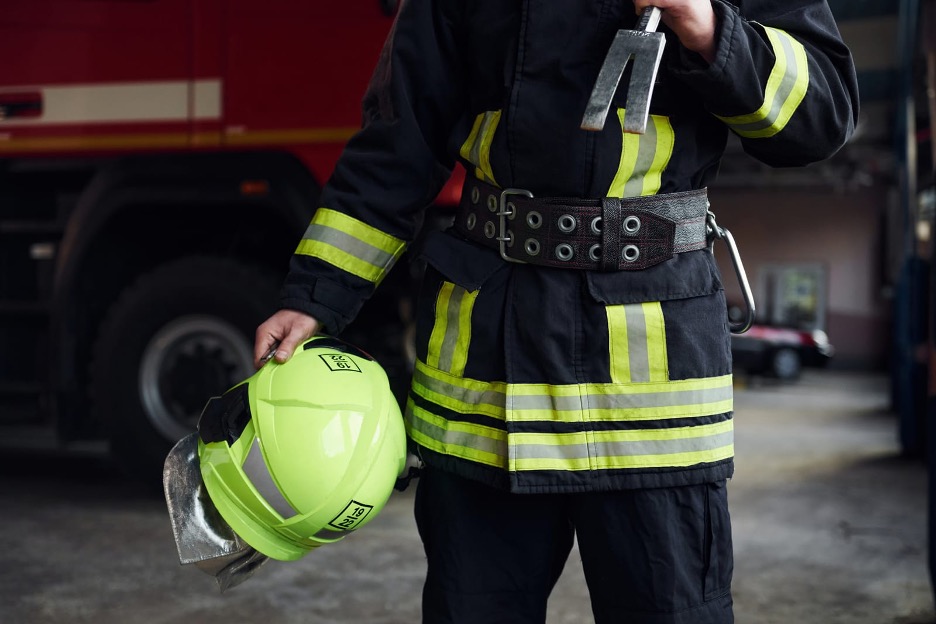Recent studies show firefighters are more susceptible to addiction and substance abuse than the average person. Studies have shown that anywhere from 40% to 85% of firefighters report drinking alcohol in the past 30 days, and around 50% report binge drinking. Additionally, they are more prone to misusing prescription drugs. The unprecedented pressures and traumatic experiences linked to their profession may play a role in the onset of addiction and substance misuse.
Firefighters face physical and mental challenges and require access to rehabilitation and addiction treatment. The issue of substance abuse and addiction is a serious concern as it can significantly impede an individual's ability to carry out their responsibilities safely and effectively. This can have negative consequences on their overall health and well-being. Firefighters struggling with addiction can find the necessary support to overcome their challenges and return to their duties with renewed energy and focus through rehab and addiction treatment.
Implicit Occupational Need for Rehab and Addiction Treatment
Firefighters are a crucial component of any community, putting their lives on the line to keep others safe. However, the daily stresses and challenges of the job can often lead to significant mental and emotional strain, increasing the risk of substance abuse and addiction. Studies have shown that firefighters are more likely to develop addiction and substance abuse issues than other professions.
The well-being and rehabilitation of firefighters with drug and alcohol issues are vital for their colleagues and those they serve. Substance abuse and addiction can compromise a firefighters’ judgment, reaction time, and coordination, putting themselves and others at risk.
Firefighters face unique stressors in their daily work, including the constant risk of injury or death, exposure to traumatic events, and long and irregular work hours. These stressors, coupled with a culture that often discourages seeking help for mental health and substance use issues, can make it difficult for firefighters to seek the support they need.
It’s essential to provide firefighters with access to specialized addiction treatment and rehabilitation programs that understand their job’s unique challenges and stressors. This can include counseling, therapy, and peer support programs that can address the mental and emotional aspects of addiction and substance use disorders.
Benefits of Addiction Treatment and Rehab for Firefighters
Addiction treatment and rehab programs can benefit firefighters struggling with substance abuse and addiction. Here are a few key advantages:
1. Improved Physical Health: Addiction can have a significant impact on physical health, including liver damage, respiratory issues, and heart disease. Firefighters can receive medical care and support from addiction treatment and rehab to address these physical health concerns.
2. Better Mental Health: Addiction often co-occurs with mental health issues such as anxiety, depression, and PTSD, which the stresses of being a firefighter can compound. Addiction treatment and rehab can provide support for dual diagnosis treatment that addresses these mental health concerns.
3. Improved Job Performance: Addiction can impair judgment, decision-making, and coordination, which can impact job performance and put lives at risk. Treatment and rehab can help firefighters regain their cognitive abilities and improve their job performance.
4. Supportive Environment: Firefighters may feel isolated and stigmatized when experiencing addiction and substance abuse. Rehab provides a supportive community where they can connect with peers going through similar experiences.
5. Increased Resilience: Through addiction treatment and rehab, firefighters can develop coping skills and strategies to deal with the stressors that come with the job, increasing their overall resilience and ability to handle challenges.
Unique Approaches to Substance Abuse Treatment for Firefighters
Firefighters face unique challenges and stressors in their work, requiring specialized therapeutic approaches. Here are some unique methods to consider:
1. Peer Support Programs: Peer support programs can be particularly effective for firefighters as they provide a safe and supportive space facilitated by fellow firefighters who have gone through similar experiences. These programs can offer a sense of community, validation, and encouragement for individuals to seek treatment and maintain sobriety.
2. Trauma-Informed Care: Many firefighters experience trauma in their line of work, which can lead to the development of addiction and substance abuse issues. Trauma-informed care focuses on recognizing the impact of trauma on an individual and tailoring the treatment approach accordingly. This can include therapies for PTSD, like Cognitive Processing Therapy (CPT) and Eye Movement Desensitization and Reprocessing (EMDR).
3. Mindfulness-Based Practices: Mindfulness-based practices like meditation and yoga can help reduce stress and anxiety in firefighters. Yoga can also provide physical benefits, like improving flexibility and reducing muscle tension.
4. Cognitive Behavioral Therapy (CBT): CBT is a goal-oriented therapy that helps people identify negative patterns of thought and behavior contributing to addiction and substance use disorders. CBT can be effective in assisting firefighters in changing their thinking patterns and making positive changes in their lives.
5. Aftercare Support: Aftercare support is critical in maintaining sobriety after rehab. It may be helpful for firefighters to have continued access to peer support groups and therapy and counseling services tailored to their specific needs and experiences.
Recovery Means Putting Your Needs on the Front Line
Firefighters are confronted with distinct stressors in their line of work that may result in addiction and substance abuse. Acknowledging the necessity for rehabilitation and addiction treatment is paramount in fostering enduring recuperation for firefighters. Treatment has been found to offer a range of benefits for both physical and mental health, as well as aiding in the prevention of relapse and enhancing job performance. Firefighters seeking treatment have access to specialized programs and resources that cater to their unique needs and challenges.
In the journey toward recovery, firefighters can rely heavily on peer support and mentorship as essential components. Contact Wish Recovery about our First Responders Program, comprehensively designed to help firefighters heal and thrive.


